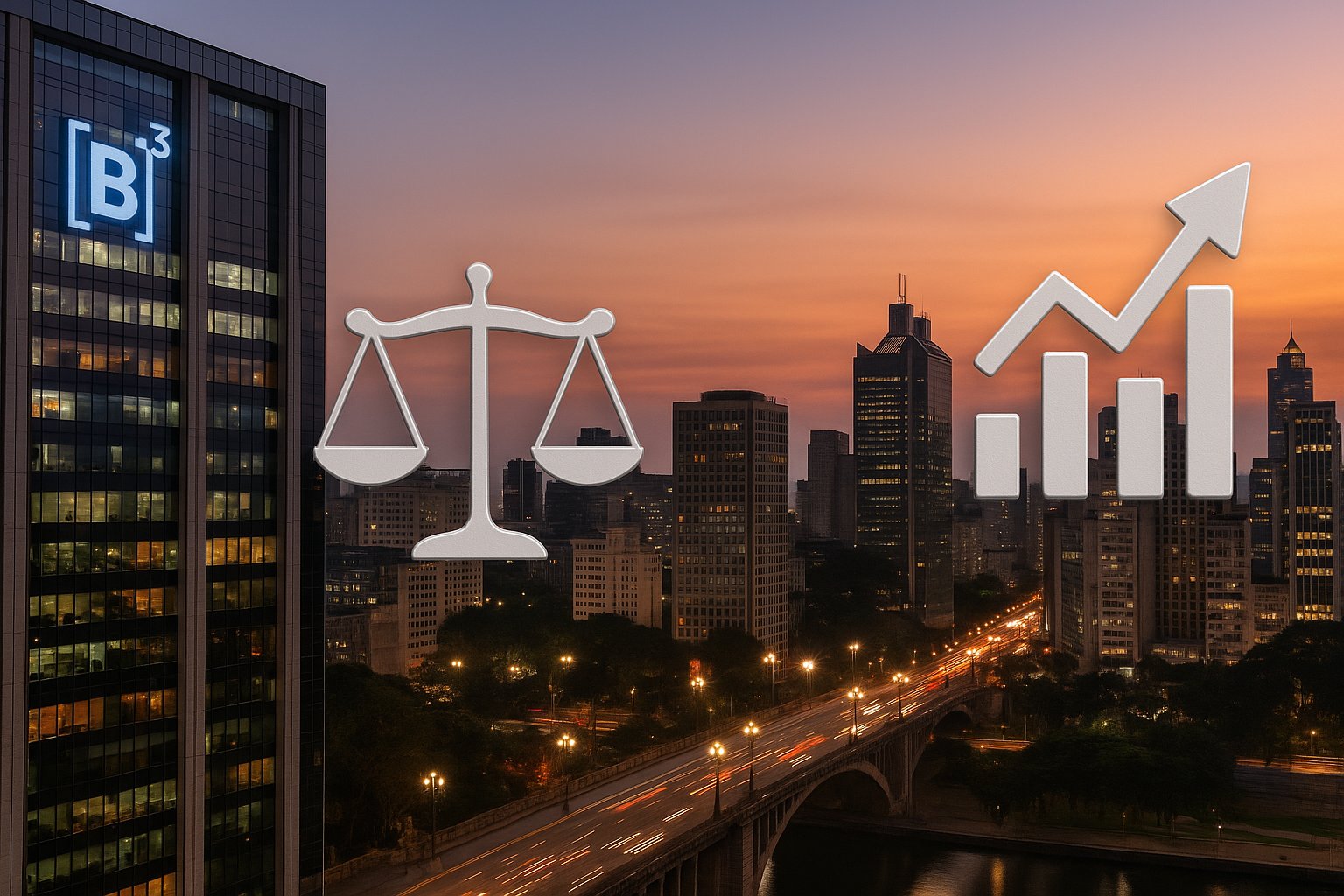Rio de Janeiro
Av. Presidente Wilson, 231 / Salão 902 Parte - Centro
CEP 20030-021 - Rio de Janeiro - RJ
+55 21 3942-1026

With its diversified economy and abundant natural resources, Brazil ranks among the top recipients of foreign investment. Direct investment in Latin America. A dedicated foreign investment lawyer converts macro potential into Operational reality involves navigating regulatory constraints and safeguarding investor rights.
The Central Bank registers inbound capital; CADE reviews mergers; CVM supervises securities; ANP, ANEEL, and ANATEL regulates strategic sectors. Counsel orchestrates filings across these bodies to ensure the transaction. Timelines stay on track.
Typical structures include Limitada, Sociedade Anonima, and branch registration. Each offers distinct capital. Requirements, governance models, and disclosure obligations. Lawyers align vehicle selection with exit. Strategies, dividend policies, and shareholder control preferences.
Inbound equity and debt must be reported via the RDE‑IED and RDE‑ROF modules. Accurate registration protects Repatriation rights enable future capital increases or quota sales without tax penalties.
Although liberalised, Brazil mandates that FX transactions flow through authorised dealers. Legal counsel Drafts FX contracts and hedging arrangements and ensures compliance with anti-money laundering rules.
Brazil employs a worldwide income tax system but offers treaty relief, interest on equity deductions, and Special customs regimes. Lawyers model Lucro Real versus Presumido scenarios and implement a double‑tier holding. Structures in treaty jurisdictions.
Defense, nuclear energy, media, and frontier‑zone land carry foreign ownership caps. Counsel designs a joint. Ventures, special purpose vehicles, or concession models to comply without sacrificing control.
Due diligence covers tax, labour, environmental, and anti‑corruption liabilities. Share purchase agreements Incorporate escrow, holdback, and post‑closing compliance covenants drafted by seasoned lawyers.
In addition to equity, investors tap debentures, FIDC receivables funds, and BNDES lines. Legal teams Negotiate collateral packages and trustee agreements that are compliant with insolvency priorities.
Dividends currently face no withholding; interest and royalties do. Lawyers structure loan‑back financing, Service agreements and equity interests balance tax efficiency and regulatory approval.
Brazil’s Clean Company Act imposes strict liability for corporate bribery. A foreign investment lawyer Establishes compliance frameworks and third‑party due diligence to mitigate enforcement risk.
Hiring expatriates requires work visas and quota compliance, while collective bargaining agreements shape wages. Structures. Counsel drafts employment contracts and compliance manuals that conform to CLT provisions.
Acquisition demands chain‑of‑title audits, environmental licensing, and indigenous land clearance. Legal teams Negotiate purchase options, leasebacks, and surface rights to secure operational sites.
Royalty agreements must be recorded with INPI and the Central Bank for deductibility and remittance. Lawyers Calibrate royalty rates within safe‑harbour caps to avoid tax reclassification.
Arbitration clauses seated in São Paulo or abroad offer neutrality. Counsel selects the governing law and Enforcement forums aligned with the New York Convention to assure recoverability.
Investors face three‑phase licensing and increasing disclosure on carbon footprints. Lawyers integrate ESG Metrics into financing covenants and compliance audits.
Cloud services, fintech apps, and e‑commerce require LGPD compliance. Counsel drafts the data processing. Agreements and cross‑border transfer mechanisms to protect user data.
Common paths include trade sale, IPO on B3, or redemption of quotas. Legal advisors prepare a drag‑along Clauses, earn‑out formulas, and tax modelling for optimal exit value.
Free‑trade zones like Manaus and Sudene offer ICMS and IPI relief. Lawyers secure incentive certificates and Monitor compliance reporting obligations.
By harmonising regulatory navigation, tax efficiency, and risk mitigation, specialised counsel turns Brazil’s Vast market into a secure and profitable investment arena.
Q: Do I need Central Bank approval to invest?
A: Equity registration is self‑declared online, but it must be accurate to ensure future repatriation.
Q: What is the minimum capital for a Limitada?
A: No statutory minimum, but banks and visas often expect BRL 100,000 or more.
Q: Are dividends taxed?
A: Dividends are currently exempt from withholding, though reforms are debated.
Q: How long does merger clearance take?
A: Simple deals clear within 30 days; complex cases up to 240 days.
Q: Can foreign investors buy rural land?
A: Restricted; structures via local subsidiaries or joint ventures mitigate limitations.
Q: Is arbitration enforceable?
A: Brazil is party to the New York Convention and courts honour awards.
Q: What FX rate applies to repatriation?
A: Commercial rate on the day of remittance via the authorised dealer.
Q: Can I hire expatriates easily?
A: Work visas require proof of expertise and minimum salary thresholds.
Q: How are royalties taxed?
A: Withholding 15% plus CIDE 10%, subject to treaty reductions.
Q: What incentives exist for tech startups?
A: The Tecnologia incentives include tax credits and accelerated depreciation.
Q: Is thin capitalisation a concern?
A: Interest deductibility limited to 30% of EBITDA and 2:1 debt‑equity for related parties.
Q: Do I need a local director?
A: A limited liability company requires at least one resident manager.
Q: How are transfer prices set?
A: Brazil applies fixed margin methods by product category, differing from OECD rules.
Q: What environmental permits are needed?
A: Licenças prévia, instalação, and operação under state agencies.
Q: Can I repatriate the loan principal anytime?
A: Subject to registration and the debt amortisation schedule filed with the Central Bank.
Q: What is RECOF?
A: A customs regime suspending duties on imported inputs processed for export.
Q: Do I need a shareholder agreement?
A: Highly recommended to manage deadlock, exits, and governance.
Q: How do I resolve tax disputes?
A: Administrative appeal at CARF, followed by judicial review if needed.
Q: Are digital signatures valid?
A: Yes, with ICP‑Brasil certification.
Q: What professional fees should I expect?
A: Legal and accounting fees vary; transparent engagement letters outline scope and cost.
For tailored legal guidance, please email: [email protected]
 Mr. Alessandro Jacob speaking about Brazilian Law on "International Bar Association" conference
Mr. Alessandro Jacob speaking about Brazilian Law on "International Bar Association" conference Av. Presidente Wilson, 231 / Salão 902 Parte - Centro
CEP 20030-021 - Rio de Janeiro - RJ
+55 21 3942-1026
Travessa Dona Paula, 13 - Higienópolis
CEP -01239-050 - São Paulo - SP
+ 55 11 3280-2197